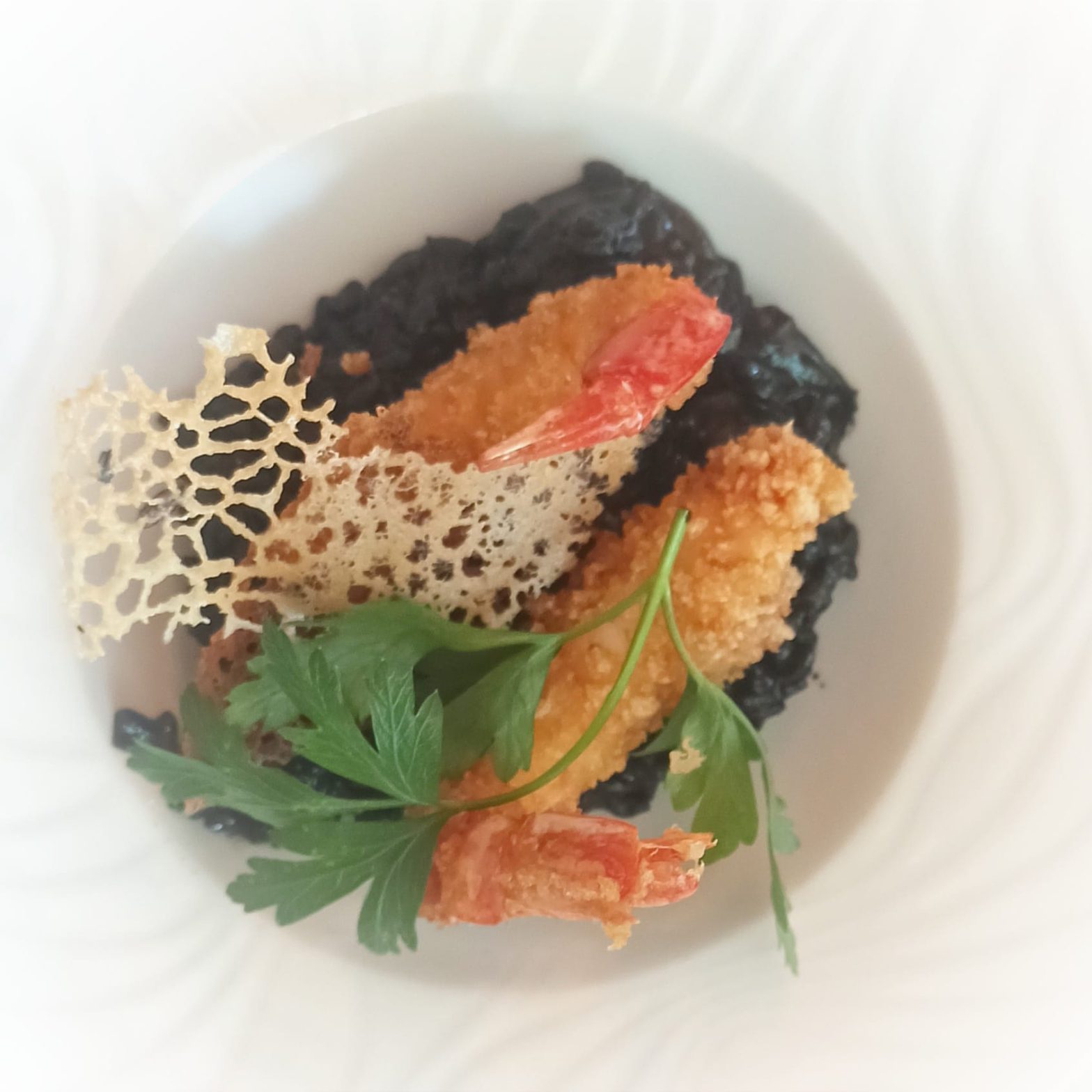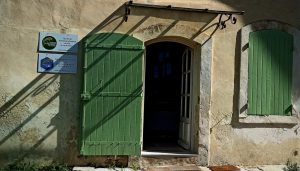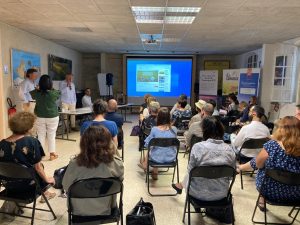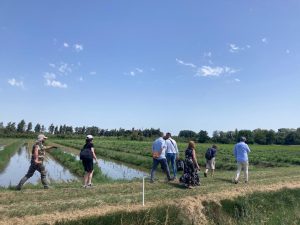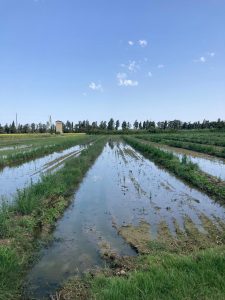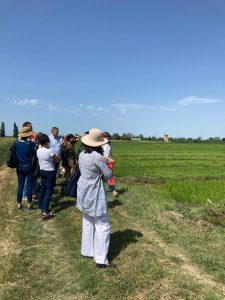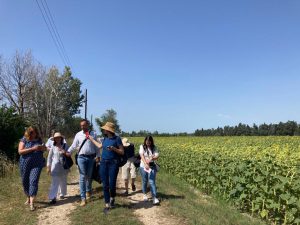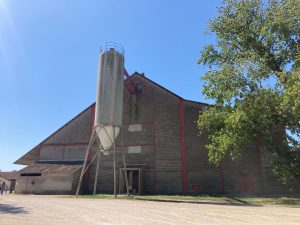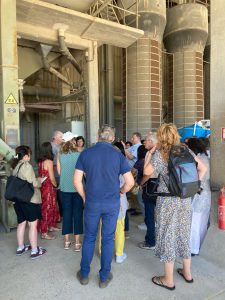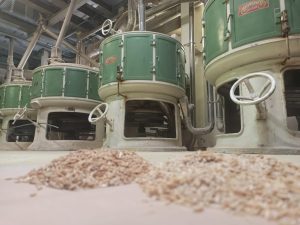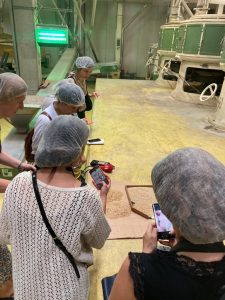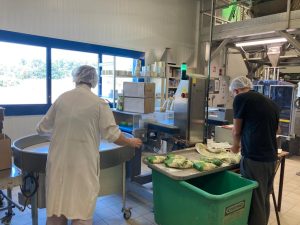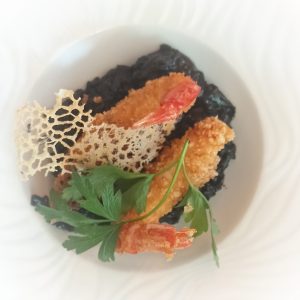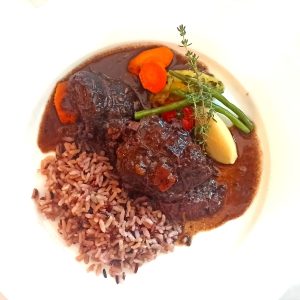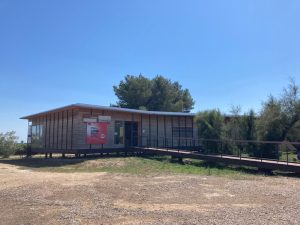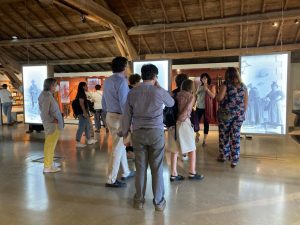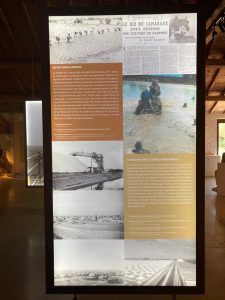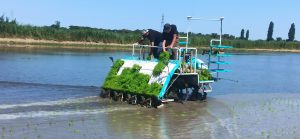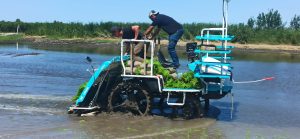1st Study Trip to Discover Camargue PGI Rice and a Territory Dedicated to Sustainable Rice Cultivation
The first study trip of the “Sustainable EU Rice – Don’t Think Twice” project took place on the 4th to the 5th of July 2022.
A diverse group of stakeholders, made up of journalists, bloggers, chefs and rice sector operators, from France, Italy, Portugal and Germany, met in Camargue Region to discover this territory set between the Mediterranean Sea and the Rhône Delta, where the France’s entire rice production is concentrated.
The meeting place on the first day was the headquarters of the Union of Rice Growers of France and the Rice Sector (SRFF) and the French Rice Centre in Arles, where Union President Bertrand Mazel welcomed the guests, who were then able to learn more in the afternoon about the peculiarities and cultivation methods of Camargue PGI rice through several presentations and educational films.
From theory we then moved on to field practice, accompanied by the expert François Clement, with the participants of the study trip able to see up close the rice fields that are submerged by the waters of the Rhone during the spring, as well as the Variety Research Centre, where new varieties of rice are tested for their ability to meet the market and cultivation needs. Thanks to research, the production of Camargue rice is constantly evolving, so much so that experimental activities have made it possible to bring about 30 new varieties to the market over the last 15 years.
The morning of the second day was dedicated to a visit to the company SA Biosud, which has specialized in the processing and packaging of organic Camargue PGI rice and in the production of organic puffed rice cakes since 1990. The owner Marc Thomas told us how organic farming has established itself in recent decades, above all thanks to the practice of crop rotation, which allows for natural cleaning and replenishment of the soil, without the use of pesticides or chemical fertilizers, since it provides organic matter essential for the balance of the soil and for the nourishment of organic crops.
The story of rice production and processing phases, from sowing through to marketing, came directly from the voices of Thomas’ team, who illustrated the various functions of the company’s equipment, and the processes essential for guaranteeing high quality standards of wholesomeness, traceability, labeling and product authenticity.
In the afternoon, the participants divided into two groups. The first visited the Museum of the Camargue to discover the history and traditions of the area, and the origins of rice cultivation in France, which dates back to the 13th century. The second group, on the other hand, were treated to a demonstration of the mechanical transplanting of rice, which has several advantages, including greater seedling resistance, water use savings, and a shorter crop cycle.
During the trip there were plenty of opportunities for tastings, including lunches and dinners based on traditional dishes capable of exalting the qualities of Camargue rice, such as braised bull cheeks accompanied by red rice, and rice pudding with apricots.
The study trip was a great opportunity for creating connections between various stakeholders in the sector, and for broadening knowledge of rice cultivation in the Camargue Region, as the second most important activity after tourism, with 160 rice growers producing as much as 65 thousand tons of rice a year, accounting for 2% of European rice production, on 11 thousand hectares of land (2022 data).


